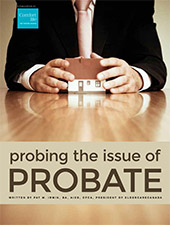What to know about this topic:
It's tax time again: so much fun for everyone (#sarcasm)! The truth is that tax time can be a little more fun if you know you are optimizing your refunds and figuring out how to get more back.
Here is a look at several changes for the 2018 filing year that will impact many Canadians 55 and older, especially:
- those who are caring for aging parents
- older people with a disability
- those paying for medicine
We take a broad overview, here. If any of these relate to you, be sure to get full facts from the CRA (links below).

The Canadian Caregiver Credit
If you care for an infirm family member (see a list of eligible relations below) this credit is now easier to claim, under a consolidated caregiver credit. As reported by the Canada Revenue Agency (CRA), the 2017 Liberal budget "proposes to consolidate" the following credits:
- the infirm dependent credit
- the caregiver credit (for in-home care of a relative)
- and the family caregiver credit as part of the new Canada caregiver credit (CCC).
To whom does it apply?
A list of eligible relatives that fall under this credit includes "your or your spouse’s or common-law partner’s parent, grandparent, brother, sister, uncle, aunt, niece or nephew."
What are the exceptions?
For caregivers of elderly loved ones, claims under this new credit will remain consistent with those of previous years, with one very notable exception. The caregiver amount "for in-home care of your parent or grand-parent who is not infirm is no longer available" (emphasis ours).
Who benefits the most?
Many people who previously used any of these credits. Here are some ways in which claims are extended or increased:
- The top-up for the lower maximum amount is being extended to claims for your infirm spouse or common-law partner.
- The income threshold above which the higher amount is reduced is more generous than the threshold currently used for the calculation of the infirm dependent credit.
- You are no longer required to live with the dependent to claim the Canada caregiver credit.
There is much more to learn about this credit, of course, and you're better off getting it straight from the source. Get much fuller details here.
The Disability Tax Credit
The noteworthy impact for older Canadians is the addition of nurse practitioners to the list of health professionals who can certify Canadians who are living with a disability. Nurse practitioners, available in a number of retirement homes listed on our site perform numerous medical services, with a focus on treating the whole person. If you don't know, you owe it to yourself to learn about eligibility requirements for the Disability Tax Credit.
The Medical Expense Tax Credit
This tax credit, claimed by many people 50 and older, has at least one important change that can be claimed retroactively, which may affect some readers. If you have received any fertility treatments in the past, these may have cost you thousands of dollars, and they were not covered under provincial health care plans. Now, though, you may be able to claim some of those costs in your tax return. In addiition, the Liberals have made the change retroactive for the past ten years. So if you’ve paid for things like in vitro fertilization any time during the last decade, you can refile your taxes and add that in. Be sure to learn more about all eligible expenses.
This information is intended to be helpful information for readers of our newsletter and website. Be sure to consult the CRA links above to get details. If you have any corrections or additions, be sure to email them to [email protected].




